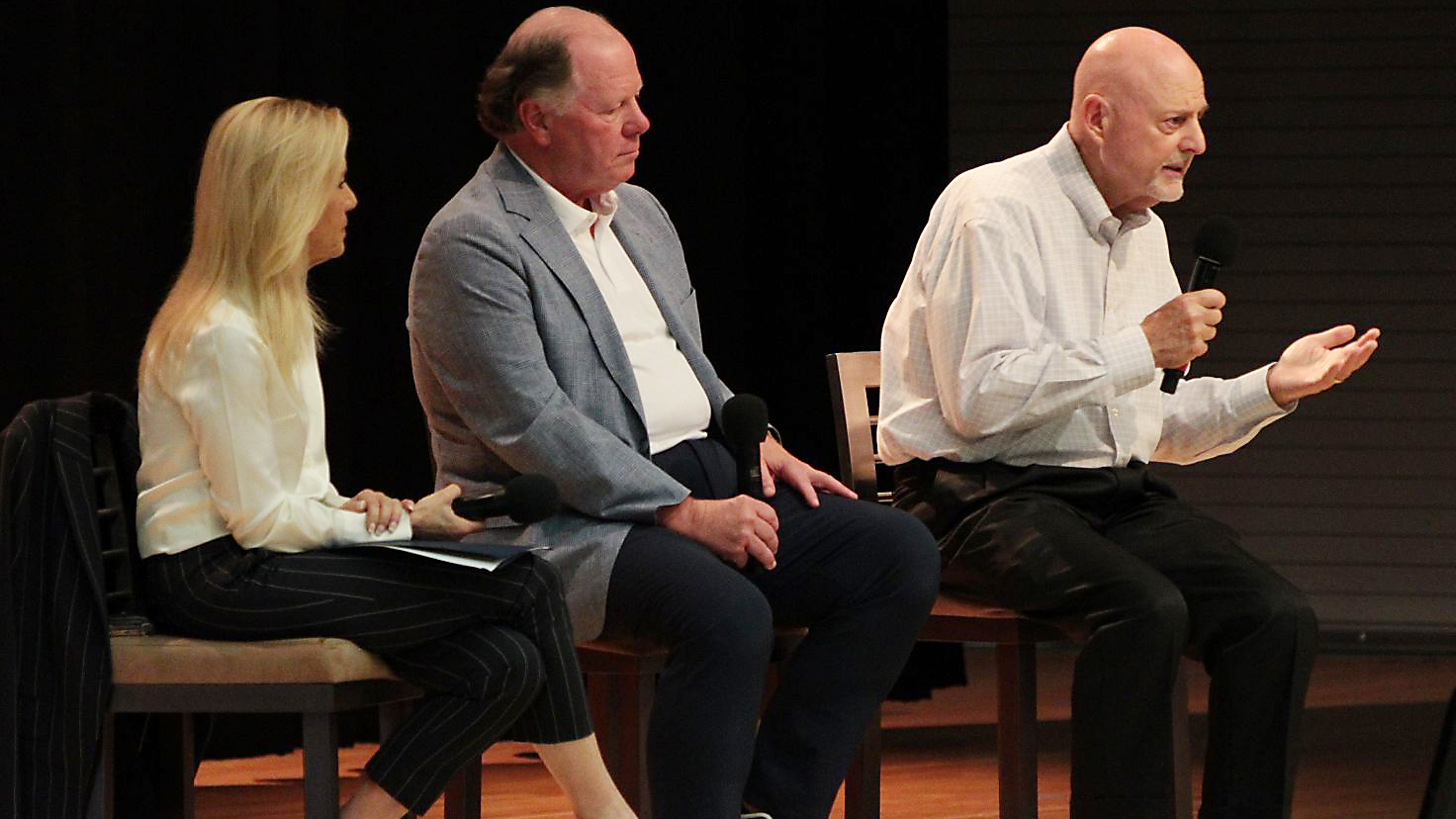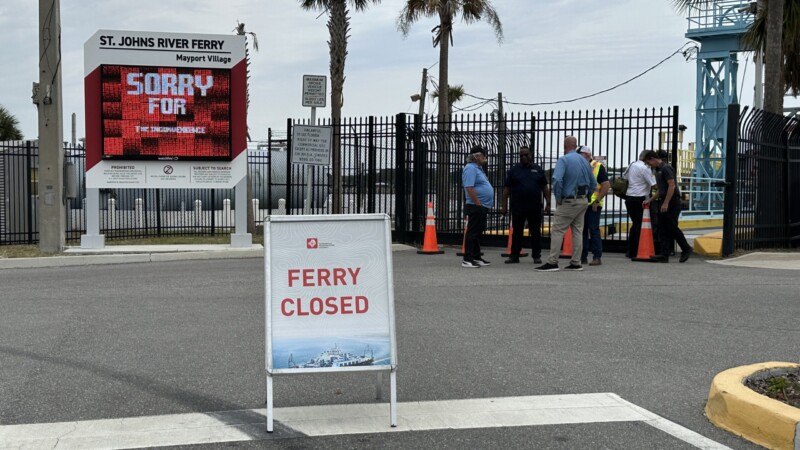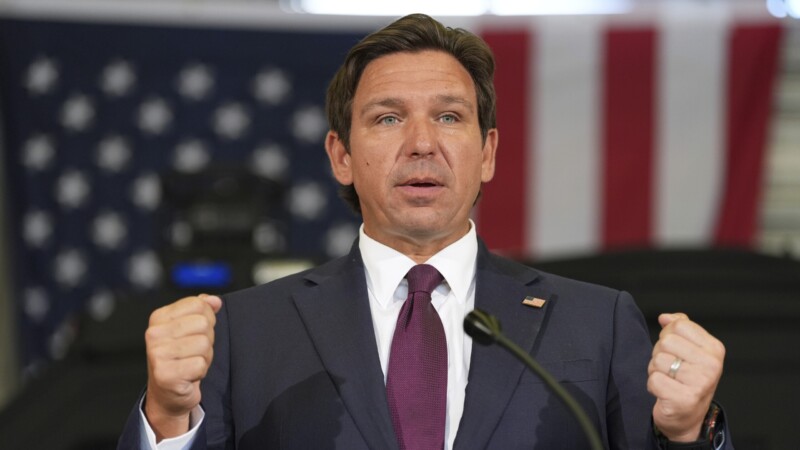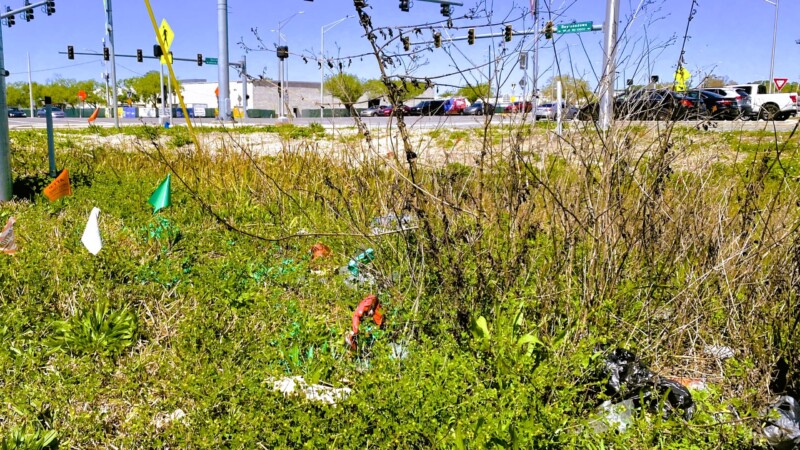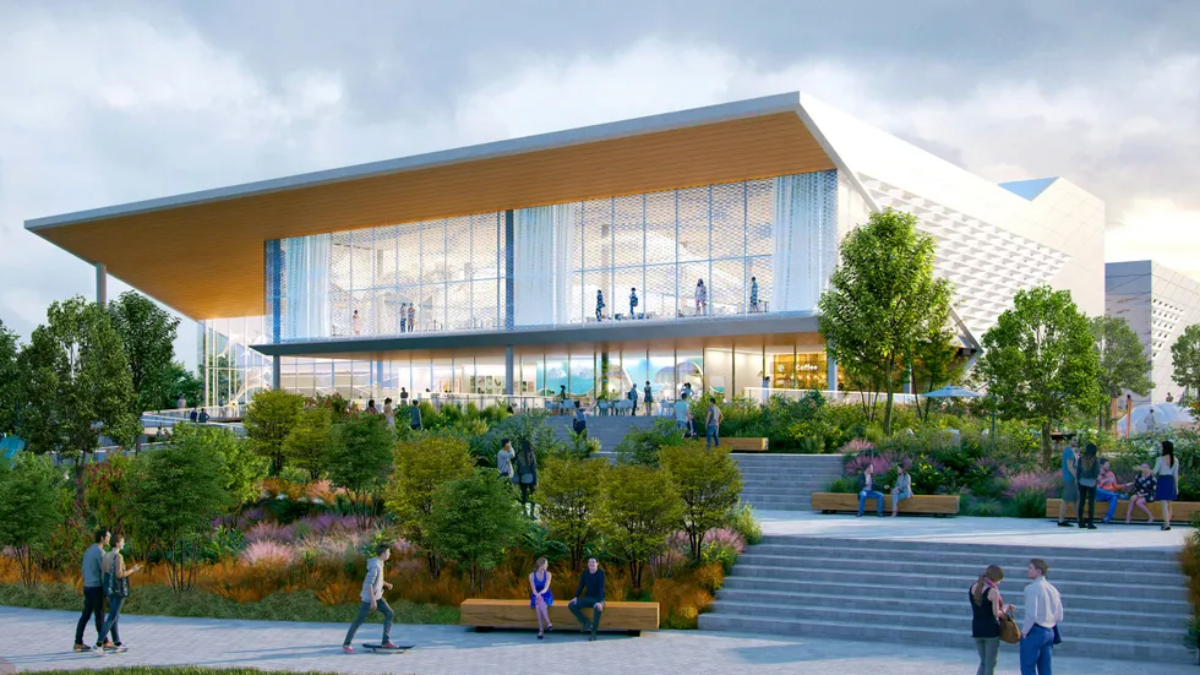This week, City Council is set to begin discussing the proposed deal with the Jacksonville Jaguars to renovate EverBank Stadium.
At its center is the agreement for a $1.4 billion stadium overhaul, the cost of which would be split 50-50 with the Jags after the city also covers $150 million in overdue maintenance and repair work. The city has said it plans to pay for its $625 million construction portion, for the most part, by redirecting revenue from a half-penny sales tax, passed as “the Better Jacksonville Plan.” But it’s not a straight line from the tax revenue pot to getting cranes in the air — the plan depends on budget changes to avoid debt on other projects, and using money that would have gone toward paying down that debt on the stadium reno.
Mayor Donna Deegan, during the Mandarin “community huddle” on the proposal last month, called the funding plan “elegant.”
Council President Salem is also publicly praising the idea of not having to increase taxes, as are the Jacksonville Chamber of Commerce and the Jacksonville Civic Council made up of business leaders — though the funding plan is not without its detractors.
The Better Jax tax
Today, Better Jacksonville Plan sales tax revenue is set to continue paying for infrastructure projects — including the Downtown library, VyStar Veterans Memorial Arena and myriad drainage projects — through at least 2026. (After that, it will be redirected to pay down pension debt — more on that in a bit.)
Funding the stadium renovation depends on continuing to use Better Jacksonville dollars for infrastructure a bit longer, Weinstein says, and that requires reversing a plan set in motion by previous Mayor Lenny Curry to sunset the tax’s infrastructure use four years early, in 2026, in order to start paying down pension debt. In anticipation, Curry moved Better Jacksonville Plan projects under the city’s capital improvement plan, as the Jacksonville Daily Record reported.
“But doing that (made) all the projects that would have been paid for by the Better Jacksonville Plan half-penny in cash, borrowed,” Weinstein said at the same “community huddle” just after unveiling the plan to City Council. And he said if the money to pay for those $600 million in approved projects is borrowed, it will end up costing Jacksonville citizens $1.5 billion more in debt service.
“Or, you can pay for it in (tax revenue) cash,” Weinstein said, and use the debt service savings toward stadium renovations.
Basically, all the fire stations, buildings, parks and other facilities that the city owns are maintained with capital improvement plan funds. And, Weinstein says, when maintenance is needed, “more often than not,” the city borrows to pay for it. “At the end of each year, we go borrow the amount that we spent to replenish the cash that we spent to make those projects work.”
In an email, the mayor’s office explained the funding plan this way:
“By moving the (Better Jacksonville Plan) projects from the CIP back to being funded by BJP sales tax revenue (cash), we are reducing the authorized and anticipated CIP debt from $1.3 billion to $700 million,” Perry said. “That leaves us with $600 million in borrowing capacity that will fund the stadium construction from 2025-2028.
Perry added that if the city does not take that approach, and accepts the stadium deal as written, it would take on a total debt burden of $1.9 billion.
“That extra $600 million is what would cause $1.5 billion in debt service over 30 years,” Perry said. “By taking the approach we are taking, we are saving $1.5 billion in debt service, receiving a world-class stadium that can be used for premium non-NFL events, and keeping the Jaguars in Jacksonville for decades to come — all without raising taxes or spending beyond what has already been planned for. And in either scenario, the pensions are fully funded.”
The pension question
In 2016, when it became clear the city couldn’t afford what it owed on pension plans for public employees, voters approved by referendum to extend the Better Jacksonville Plan tax by another 30 years for that purpose, from 2031 to 2060.
During the mayor’s unveiling of the stadium deal in May, Beaches City Council member Rory Diamond, while sitting on the dais, posted a thread on X (formerly Twitter), accusing Deegan of planning to “undo our police and fire pension fix… and divert the Better Jacksonville Plan funds to pay for other ‘projects.’”
Weinstein, in a statement issued by the city soon after, denied any negative impact on pensions.
“Our recommended funding proposal follows the will of voters when they passed the referendum to complete Better Jacksonville Plan projects and start paying down pension fund debt in 2031 out of the half penny sales tax,” Weinstein said. “Anyone who says this funding proposal would doom the pension fund is either intentionally misleading the public or misunderstands how the pension fund actually works.”
Weinstein said whether the 30 years of using the tax to pay down pension debt begins in 2026 (as Curry had planned) or in 2031, the revenue stream “will adequately fund the pension programs.”
“You can’t get more than 30 years,” Weinstein said. “So starting earlier doesn’t benefit the programs. They still will get 30 years of pension funds and probably will be fully funded in 24 or 25… it won’t take all 30.”
Public approval high, though questions remain
Former Duval County Republican Party Chair Robin Lumb, who today heads the nonprofit Alliance of Conservative Voters, also challenges how the funding plan is expected to work.
“It’s a shell game,” Lumb says. “There are a lot of moving pieces, and the pea is getting hidden under a lot of different shells.”
Lumb, a former city council member who then worked as a policy analyst with the Curry administration, says he’s fundamentally opposed to subsidizing the Jaguars, a for-profit enterprise, with public dollars.
“A good local government doesn’t spend taxpayers’ money on a profit-making enterprise endeavor for a multi-billionaire,” Lumb says. “Capital needs in the city are unending.”
Lumb is in the minority on that question, if a recent University of North Florida poll is to be believed. On the condition that the deal includes a $300 million “community benefits” spend in areas outside the stadium, including the Eastside neighborhood, most residents polled supported the deal.
Still, paying for the renovations by avoiding debt isn’t viewed by all as “elegant.”
“Prospective savings on money not borrowed is a little fishy to me,” says Professor Michael Binder, whose Public Opinion Research Lab conducted the recent poll.
To Binder, the plan is like saying, “I’m not going to buy another house. So, because I’m not going to buy another house, I’m gonna save a million dollars in interest payments, and because I saved a million dollars in interest payments from not buying a house, I’m gonna go buy a boat – and that boat is only going to cost me $500,000. So, I’m ‘making’ $500,000.”
Other priorities
Binder’s poll also showed the stadium renovation isn’t at the top of most residents’ priority list.
If given a choice between spending city dollars on the stadium or other pressing needs, taxpayers chose the other needs — such as a new jail, which comes with an estimated $1 billion price tag of its own.
Funding streams for the jail have not even been broached by the city. But both projects are long-term financial commitments that will need to come out of city coffers.
“Let’s be honest. The funding mechanism for the stadium deal is kind of some funny money right there,” Binder said last week on First Coast Connect. “There’s no tax increases associated with it. You’re moving around timelines for the half-cent sales tax and, you know, it’s smoke and mirrors in a lot of ways.”
“We’re out of funny money when it comes to a billion dollars for a jail,” he said.
Next steps
The $1.4 billion proposed stadium agreement includes many moving parts — like timelines, where the Jags will play during renovations, and the “community benefits agreement.” Among the details to be weighed are a non-relocation agreement; parking; security; and the new 30-year lease for the stadium and performance center that outlines how the Jaguars and the city will split operating costs and revenue for the next 30 years. All told, at least eight separate parts of the stadium agreement are being finalized for Council review this week.
Prior to an expected vote tentatively set for June 25, the City Council is holding workshops to discuss the plans. The first of several is set for Wednesday, June 5, from 10 a.m. to 4 p.m. at City Hall, 117 W. Duval St. Live stream the meeting here. The workshop will continue Thursday, June 6, from 1 p.m. to 4 p.m.,if necessary.

Casmira Harrison is a Jacksonville Today reporter focusing on local government in Duval County.


